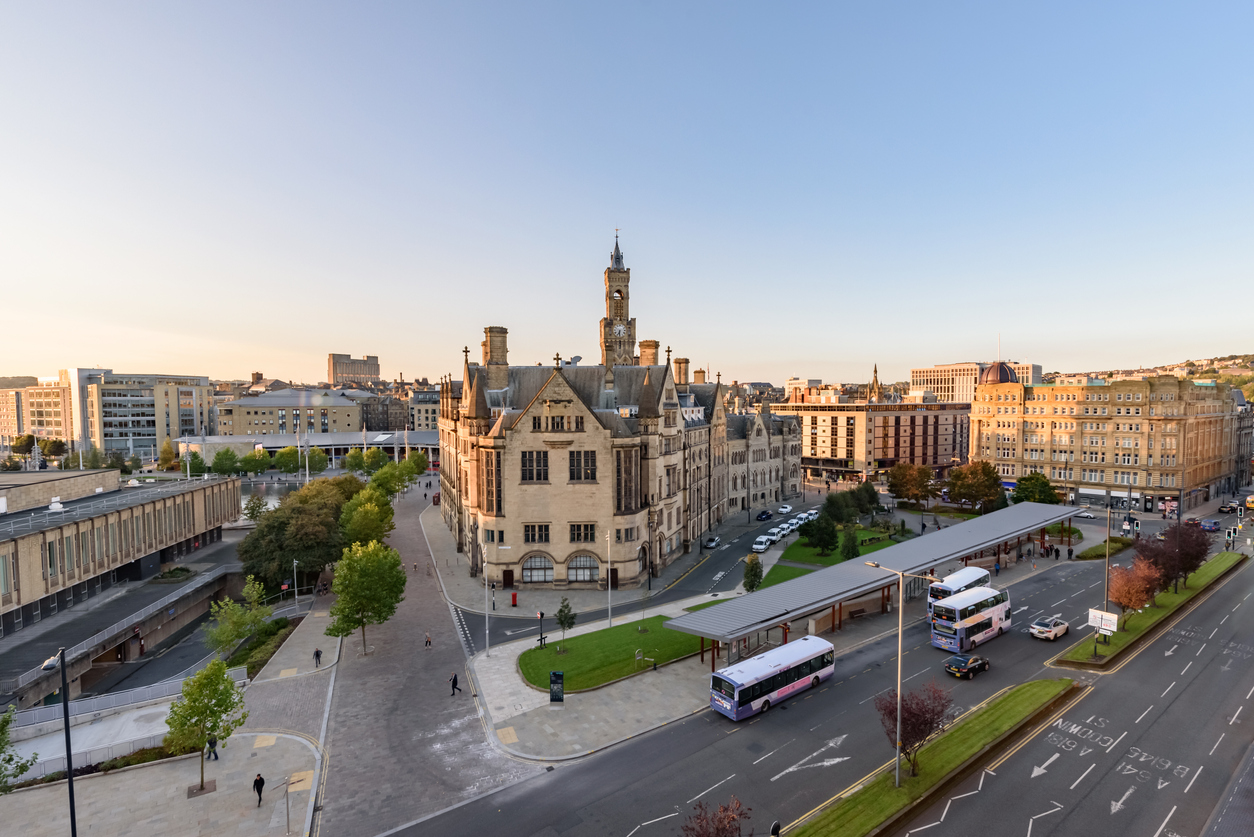
The new school will be located in central Bradford.
Photo: SAKhan Photography
Green light for BRIT School in Bradford
Approval is heralded as a signal government recognises the importance of cultural education, but there are questions around the lack of support for existing infrastructure in the North.
Plans for a new specialist creative school in Bradford have been approved by the Department for Education (DfE), following a bid to the department’s free schools funding process.
The specialist college will offer free education to students aged 16 to 19 from across West Yorkshire and the North of England and is projected to open in academic year 2026/2027.
It will follow a vocational curriculum, offering both performance and skills-based subjects across music, theatre, musical theatre, dance, film and TV, interactive digital design and production arts.
READ MORE:
- Bid for creative school in Bradford submitted to DfE
- Scheme to protect grassroots music venues launches
The proposal for BRIT School North, as it is currently known, is being led by the British Phonographic Industry (BPI), in collaboration with BRIT School and East London Arts & Music (ELAM), as well as record companies Sony Music Entertainment UK, Universal Music UK and Warner Music UK, and the London Screen Academy (LSA).
Its model is inspired by the BRIT School in Croydon, which is free to attend and has established a strong reputation over more than 30 years of operation.
Dr Jo Twist, Chief Executive of BPI, said the DfE’s approval “is a positive signal that government recognises the critical importance of creative and specialist creative arts education”.
“The UK is a world-leader in music and across the creative industries and if we want this to continue, we must invest in talent and the highly transferable skills needed for a competitive economy,” she added.
Bradford was selected as the new school’s location after an extensive search for a city outside London and the South East of England that delivered on ambitions to level-up creative opportunity for underserved young people and offered a wider creative ecosystem.
“We know that young people have moved to London and the South East to specifically attend creative schools like the BRIT School and ELAM, and this approval means they will no longer have to do this,” said YolanDa Brown, Chair of BPI.
BPI intends the school to help deliver on the legacy commitment of Bradford’s status as City of Culture 2025 and to contribute to the city’s 10-year cultural strategy, which is intended to place the creative industries at the heart of the local economy.
Existing infrastructure at risk
While the BRIT School North proposals have received widespread support, commentators are also calling for existing infrastructure to be given similar investment.
An opinion piece published in the Yorkshire Post yesterday said while the new school is a welcome development, “let’s not pretend it solves the neglect of the North”.
“Were it not for Channel 4 leading the way, setting up its Leeds base in a bid to begin the redistribution of creative opportunity, it is questionable whether this new facility would have arrived at all,” the publication added.
Meanwhile Matt Griffiths, CEO of Youth Music, told Arts Professional questions have been raised around the lack of investment in existing youth-focused infrastructure in the area.
“This is great news for young people in Bradford and the wider Northern regions. Congratulations to BPI and its partners on getting to this stage,” he said.
“It's really important though to also invest in the existing spaces, infrastructure and workforce to support young people including schools, youth services and charities – the very grassroots supported by Youth Music and others which is under great pressure due to many factors, including the cost-of-living crisis.”
A recent survey by Youth Music found grassroots projects are facing a funding crisis that is set to worsen, with 55% of all respondents reporting a fall in donations or income, both due to funding cuts in the sector and declining donations from the public.
“Last year, we invested £10m in the grassroots music projects, over three quarters of which went to the 40% most deprived local authorities. Sadly though, our success rates for funding are at a historic low, so we need sustained investment from the music industries,” Griffiths said.
“That way, significant numbers of diverse young people can be supported at scale as a result of an integrated and joined up strategy.”
Join the Discussion
You must be logged in to post a comment.